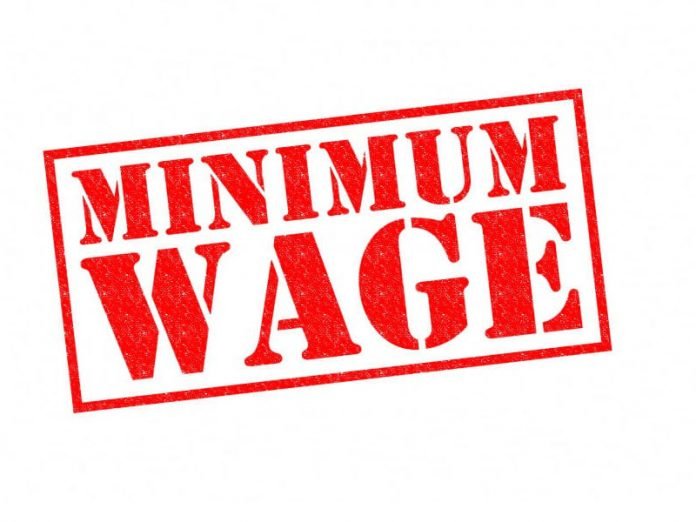Minimum wage in Pakistan: 2025 rates, laws, and realities


The minimum wage in Pakistan sets the legal floor for pay. As of July 1, 2024, the federal baseline is PKR 37,000 per month, with provinces issuing their own notifications that can be higher. This guide gives you the latest rates, how the law works, and what to do if pay falls below the legal minimum.
Table of Contents
Current minimum wage in Pakistan (2024–2025)
Below are the newest official figures and reliable trackers. Always confirm with the latest provincial notification before making decisions.
Federal minimum wage baseline: PKR 37,000 per month
The federal government notified PKR 37,000 for unskilled workers. See the government notice coverage in Dawn and ongoing tracking on Trading Economics and WageIndicator.
Punjab minimum wage updates and enforcement
Punjab has moved to higher rates via periodic notifications. Refer to the Punjab Labour & HR Department for the latest PDF orders and effective dates.
Sindh minimum wage: highest provincial rate, structured by skill
Sindh traditionally leads on higher wage floors. Recent skill-based schedules are published by provincial bodies, including SESSI guidance for unskilled and skilled workers, with context from business press like Pakistan Today Profit.
Khyber Pakhtunkhwa minimum wage notifications
Check KPK notifications and legacy rules (for context) such as the Minimum Wages Rules, and news on recent changes via reputable outlets.
Balochistan minimum wage and compliance status
Official notices are issued by the provincial labour department and echoed by national media. Verify current amounts before payroll updates.
Islamabad Capital Territory wage rules
ICT follows the federal baseline. See Paycheck.pk, ICT page for a simple breakdown and historical notes.
Minimum wage laws in Pakistan
Understanding the legal base helps both workers and employers comply.
Minimum Wages Ordinance 1961 and provincial acts
The Minimum Wages Ordinance, 1961 created the framework and wage boards. After the 18th Amendment, provinces legislate and notify their own rates, so always consult the latest provincial order. Minimum wage The legally mandated lowest monthly pay for covered workers in industrial and commercial establishments. Living wage An estimated income needed to meet basic needs with dignity. See SDPI and Anker Institute for methods and figures. Coverage Typically applies to industrial and commercial establishments. Agriculture and some categories may be excluded. Confirm scope in the relevant provincial law and notifications.
- Punjab minimum wage notifications
- National legal overview, WageIndicator
- Ministry of Finance, Pakistan
- Pakistan labour law compliance guide (internal)
Who is covered and who is excluded under law
Coverage depends on establishment type, sector, and worker category. Employers should review the exact definitions in provincial acts and notifications before setting pay policies.
History of minimum wage in Pakistan (1993–2025)
Pakistan’s minimum wage has increased steadily over three decades, but inflation has eroded much of its value. In the early 1990s, the wage floor was only PKR 1,500. By 2010, it reached PKR 7,000, and by 2024, the federal baseline rose to PKR 37,000. While the nominal wage grew, prices for essentials like food, rent, and fuel rose even faster, keeping real purchasing power limited. Historical data can be traced on WageIndicator and Trading Economics.
Key milestones
- 1993: PKR 1,500 baseline
- 2001: PKR 2,500
- 2008: PKR 6,000
- 2013: PKR 10,000
- 2021: PKR 20,000+
- 2024: PKR 37,000 federal baseline
Inflation impact on wages
Despite increases, inflation has kept workers behind. In January 2024, Pakistan’s inflation rate was 28.35%, according to the Centre for Labour Research. This means wage hikes often lag behind actual living costs.
Federal vs provincial wage-setting
Before the 18th Amendment in 2010, the federal government set wages nationwide. Now, each province issues its own notifications, which creates differences across regions. Sindh typically sets the highest rates, while Balochistan and ICT align with federal baselines.
Compliance crisis: why most workers don’t get minimum wage
On paper, the law is clear. In reality, it is often ignored. Studies and labour surveys reveal that up to 80% of private industrial units do not pay the mandated minimum wage (Dawn).
Sectors with lowest compliance
- Textiles – Pakistan’s largest employer but plagued with underpayment
- Construction – informal and seasonal, with few checks
- Domestic work – excluded from many protections
- Retail and services – often pay far below minimums
Enforcement challenges
Labour inspectors are under-resourced and political will is often lacking. According to The Express Tribune, penalties can reach PKR 50,000 and even jail terms, but enforcement is rare.
Worker realities
Case studies shared on Reddit r/pakistan highlight that guards, drivers, and domestic staff often earn PKR 12,000–30,000, far below the legal wage. Many employees cannot risk reporting violations due to fear of losing jobs.
Minimum wage vs living wage in Pakistan
The minimum wage is the legal floor, but the living wage is what workers need for a decent life. The gap between them is wide.
Living wage estimates
Independent research by SDPI places the living wage at PKR 51,076 per month in 2024. This is about 38% higher than the official minimum.
Urban vs rural differences
Urban workers in Karachi, Lahore, or Islamabad face higher rents and transport costs compared to rural areas. A family of four in Karachi spends around PKR 60,000 on basic needs, far above the legal minimum.
Impact on poverty
Low compliance and wage gaps mean many workers remain below the poverty line. According to labour research studies, wages alone cannot lift workers without inflation control and stronger enforcement.
South Asian comparison
Pakistan’s baseline of PKR 37,000 (~USD 135) is lower than India’s average minimum wage (USD 160) and far below Bangladesh’s living wage demands in textiles. See Wikipedia’s global minimum wage list for comparisons.
Worker rights and complaint process for minimum wage violations
Pakistan’s labour laws provide formal routes for workers who are not paid the legal minimum. Unfortunately, awareness is low and fear of retaliation is high. Knowing the process is the first step to exercising rights.
How to file a complaint
A worker can approach the relevant provincial labour department or a labour court. Complaints can be made in writing, supported with payslips or witness statements. Some provinces, like Punjab, publish online complaint forms on the Labour & HR Department website.
Provincial labour department contacts
- Punjab Labour & HR Department
- Sindh Labour Department
- Khyber Pakhtunkhwa Labour Directorate
- Balochistan Labour Department
- ICT Administration
Penalties for employers
Under the law, employers found guilty of paying less than minimum wage may face fines between PKR 20,000 and PKR 50,000, and in some cases, imprisonment of up to six months (Dawn report).
Worker protections
Labour laws prohibit retaliation, meaning employers cannot legally dismiss or harass workers who file wage complaints. In practice, enforcement remains weak, so support from worker unions or NGOs such as the Human Rights Commission of Pakistan can be essential.
Employer compliance guide on minimum wage in Pakistan
Employers have clear obligations under law. Failure to comply damages reputation, risks penalties, and harms workforce productivity.
Legal obligations
All industrial and commercial establishments must pay at least the notified minimum wage to covered employees. Notifications apply automatically; contracts that mention lower rates are not enforceable.
Record-keeping and payslip requirements
Employers should maintain transparent records: attendance registers, wage sheets, and payslips. The Federal Board of Revenue also requires proper documentation for payroll tax purposes.
Challenges for SMEs
Small businesses often argue that rising wages strain finances. However, underpayment leads to high turnover and potential penalties. Provincial authorities do not allow exemptions for SMEs, making compliance essential.
Best practices
- Regularly check official wage notifications from labour departments.
- Issue payslips every month to employees.
- Align payroll software with minimum wage updates.
- Consider gradual wage increases to meet living wage benchmarks.
FAQ on minimum wage in Pakistan
What is the current minimum wage in Pakistan?
The federal minimum wage is PKR 37,000 per month, effective July 2024. Provinces may set higher rates, such as Punjab and Sindh at PKR 40,000 or more.
Does minimum wage vary by province in Pakistan?
Yes. After the 18th Amendment, provinces set their own minimum wage. Sindh often leads with the highest rates, while Punjab and KPK issue their own notifications. ICT follows the federal baseline.
Is the minimum wage enough to live on in Pakistan?
No. Research by SDPI shows a living wage should be around PKR 51,000, far above the current legal minimum.
What are the penalties for not paying minimum wage?
Employers can face fines up to PKR 50,000 and possible imprisonment. However, weak enforcement means penalties are rarely applied.
How often is the minimum wage revised?
Traditionally, revisions are announced in annual budgets, effective July each year. However, provinces may update their notifications at different times.
Which province has the highest minimum wage?
As of 2025, Sindh has the highest minimum wage, with skill-based rates reaching over PKR 50,000 in some categories (Pakistan Today Profit).
Conclusion: the future of minimum wage in Pakistan
Pakistan’s minimum wage laws have come a long way since the 1990s. The baseline of PKR 37,000 is a milestone, but the reality is that enforcement remains weak and most workers never see that amount in their pay slips. Provinces like Sindh and Punjab have taken progressive steps, yet the compliance gap leaves millions vulnerable to wage theft and economic insecurity. Bridging the divide between minimum wage and living wage is essential if the system is to provide real protection against poverty.
For workers, staying informed is critical. For employers, fair wages are not just a legal requirement—they build stronger, more stable teams. The future of Pakistan’s wage policy depends on better enforcement, employer responsibility, and collective awareness.


Author: ZunNurain Khalid — Travel & Tourism Specialist, Founder of ExploreX Pvt. Ltd., and advocate for sustainable tourism in Pakistan. With over a decade of experience in digital marketing and destination branding, ZunNurain has worked extensively on promoting Pakistan’s natural and cultural heritage.
References
- Dawn: Govt notifies Rs37,000 minimum wage
- Trading Economics: Pakistan Minimum Wages Data
- WageIndicator: Minimum Wage Pakistan
- Punjab Labour & HR Department Notifications
- Pakistan Today Profit: Sindh wage updates
- SDPI: Living wage estimates in Pakistan
- Express Tribune: Minimum wage violations
- Minimum Wages Ordinance 1961
- HRCP: Labour rights and worker protections
- Wikipedia: Global minimum wage comparisons


2 thoughts on “Minimum Wage in Pakistan 2025: Rates, Laws & Compliance”